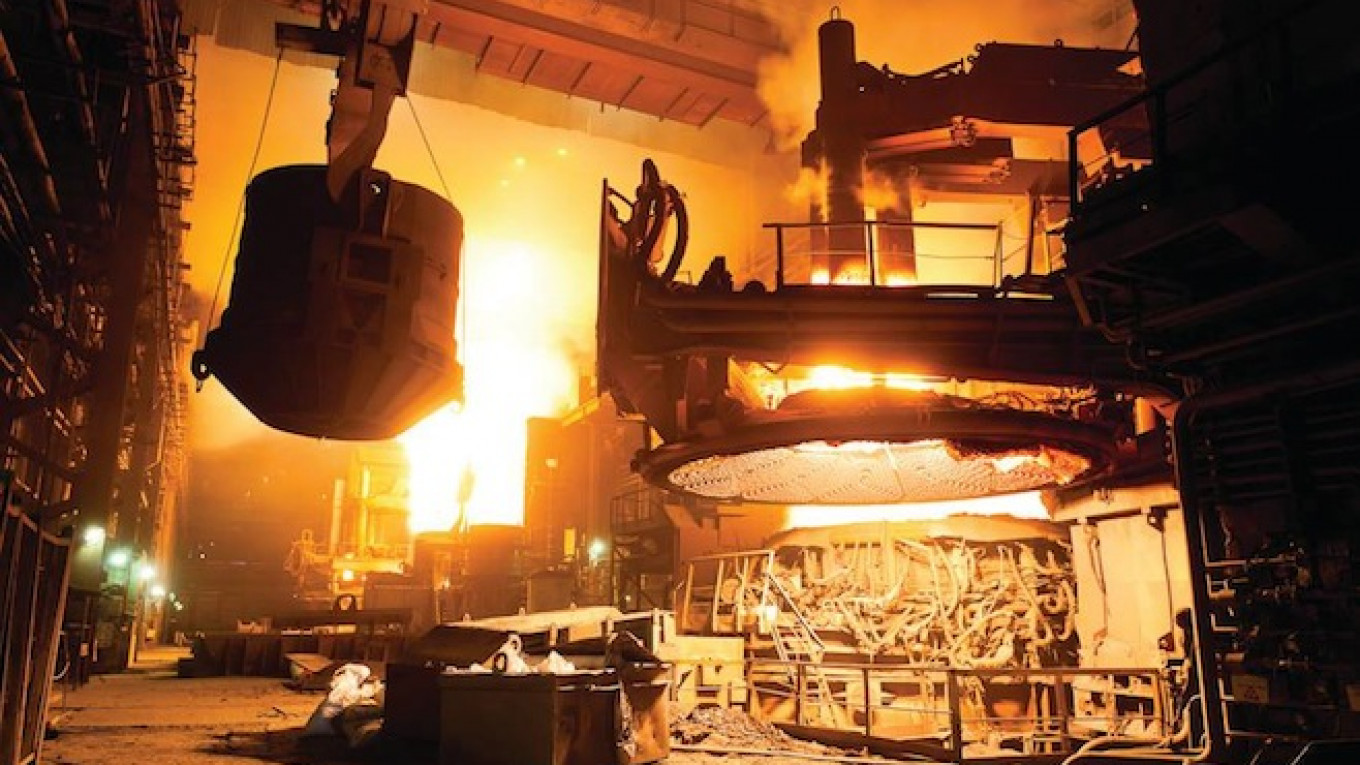Russia's largest steelmaker, Evraz, posted on Wednesday a 2013 net loss of $572 million, 35 percent deeper than in 2012 due to "cyclical headwinds" and said the political standoff with Ukraine could hit its business.
The $500-billion-a-year steel industry, a gauge of the health of the global economy, suffered last year from a drop in demand from Europe and worries about the outlook for the Chinese economy.
Evraz, controlled partly by Chelsea soccer club owner Roman Abramovich, said 2014 had got off to a mildly positive start but cautioned that geopolitical risks remain.
"The geopolitical developments around Ukraine could have an impact on our operations, as we have assets both in Ukraine and Russia. However, to date our operations have not been adversely affected," the company said.
Kiev has accused Moscow of orchestrating unrest in its eastern regions, heightening fears of Russian military intervention after Russia annexed its Crimea region last month.
Evraz's Ukrainian business generated 7 percent of the firm's total consolidated revenue last year.
In 2014, Evraz plans to focus on cutting costs to reduce operating expenditure by $350 million to $400 million and reducing its debt.
Evraz's board has recommended a dividend of 6 cents per share as a result of the sale of its Czech unit Vitkovice, but the firm has revised its overall policy and will only pay regular dividends in the future when its net debt to EBITDA ratio is below 3.0.
The firm's debt to EBITDA ratio, a key measure of a company's ability to service its debt, stood at 3.6 in 2013.
Last year revenue fell 2.1 percent to $14.4 billion, while consolidated earnings before interest, taxes, depreciation and amortization, or EBITDA, fell 10 percent to $1.8 billion.
A Message from The Moscow Times:
Dear readers,
We are facing unprecedented challenges. Russia's Prosecutor General's Office has designated The Moscow Times as an "undesirable" organization, criminalizing our work and putting our staff at risk of prosecution. This follows our earlier unjust labeling as a "foreign agent."
These actions are direct attempts to silence independent journalism in Russia. The authorities claim our work "discredits the decisions of the Russian leadership." We see things differently: we strive to provide accurate, unbiased reporting on Russia.
We, the journalists of The Moscow Times, refuse to be silenced. But to continue our work, we need your help.
Your support, no matter how small, makes a world of difference. If you can, please support us monthly starting from just $2. It's quick to set up, and every contribution makes a significant impact.
By supporting The Moscow Times, you're defending open, independent journalism in the face of repression. Thank you for standing with us.
Remind me later.






